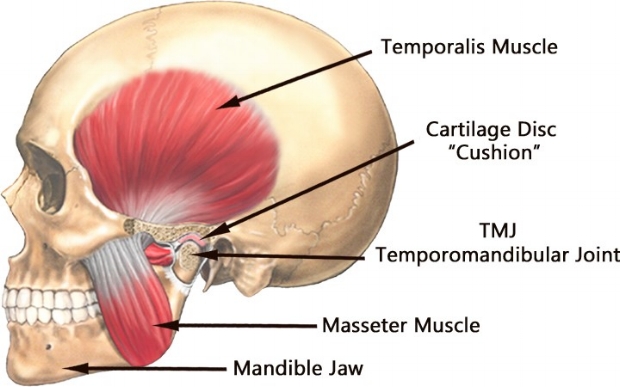This week I have Dr James Willis DDS here to talk about the link between tooth problems and headaches. In addition to talking about underlying issues that may be causing these issues, Dr Willis will also be discussing strategies you can use to help reduce the intensity/frequency of these headaches at home. Dr Willis is a dentist in Burke Virginia. If you are interested in staying up to date with him please visit his website: http://www.burkedental.com/
Migraines and headaches are one of the worst pains a person can experience. Sensitivity to light and sound that feels like your brain is being penetrated with sharp objects or a dull nagging pain can ruin anyone’s day. When compounded with frequent recurring ones, it can be almost unbearable. However, have you ever considered why you are experiencing them, instead of just treating the symptoms? While there are several explanations and causes for migraines or headaches one cause is often overlooked.
It may be surprising that one reason you are experiencing headaches or migraines is related to your oral health, namely tooth or jaw problems. Most people when they have frequent headaches make an appointment with their primary care doctor, only to have vague answers as to why they are experiencing the pain. While investigating further, it might make sense, which a tooth or jaw problem could be a direct cause.
A tooth infection, especially if left untreated may not resolve, causing persistent pain. When an infection is present, the pain can be intense, or a person can have referred pain. Referred pain means while the pain stems someplace, it is felt in another area. One way to tell if an infected tooth is a problem is the location of the headache pain. Usually, the pain will be present on one side, and typically will be the same side as the infected tooth. But for those that frequently experience migraines, the problem could be associated with two other dental issue, one called TMJD, or temporomandibular joint disorders and the other Bruxism, or grinding of the teeth.
Bruxism is usually found to happen to patients while they are sleeping. If you are waking up with a headache in the morning, but it resolves in an hour or two, you might be grinding your teeth in your sleep. Grinding your teeth all night means your muscles are always working and not getting the proper rest they need.
TMJ disorders affects the Temporomandibular Joint connecting the temporal bone of the skull and your lower jaw bone. It is a type of TMD, or temporomandibular disorder. When someone has TMJ disorders, there is an alignment problem causing the joint connecting the two bones to have excessive wear. Some possible reasons this condition happens is arthritis, Bruxism or excessively grinding teeth (whether voluntarily or involuntarily), or torn cartilage within the joint. Patients that have TMJ will experience a clicking or popping sound when opening and closing their mouth. Opening your mouth widely for a long duration can also cause result in TMJ Disorders. Migraines associated with the TMJ are felt in the temples and can be on one or both sides.
Solving Headaches Associated with Tooth/Jaw Problems
TMJ disorders or Bruxism will cause a person's jaw muscles to have to overcompensate, and will work harder and the result… a horrible headache. Most individuals with TMJ disorders or excessively grind their teeth will have the symptom of frequent recurring headaches. The only way to truly diagnose if TMJ is the condition you are experiencing is to visit a dental office. The first instinct may be to see a general practitioner to receive a diagnosis. However, if you have already tried seeing your regular doctor and still have no relief, the problem could lie within your oral health. During an appointment with a dentist, they will check your bite alignment for irregularities. If diagnosed with TMJ disorders a treatment plan can be created, or a recommendation to see another practitioner can be made.
Home remedies you can try to alleviate or prevent headaches from TMJ pain or grinding of teeth can can include:
-Wearing mouth guards overnight- This will reduce wear on your teeth, and help to stabilize your jaw.
-Massaging the jaw muscle for tightness relief- Using a circular motion with your thumb, start near the center near the joint and work your way outwards.
-Apply a hot and cold compress- Using a mixture of cold compress for ten minutes followed by heat for another ten can relieve tension or pain in the TMJ. Hot and cold compresses can also be used for solving headaches when applied directly to the pain site.
About the Author:
Dr. James Willis of Burke Dental practices general, cosmetic, preventative, and corrective dentistry. James Willis, DDS holds an active membership with the American Dental Association and is on the Board of Directors for Virginia Dental Association.


